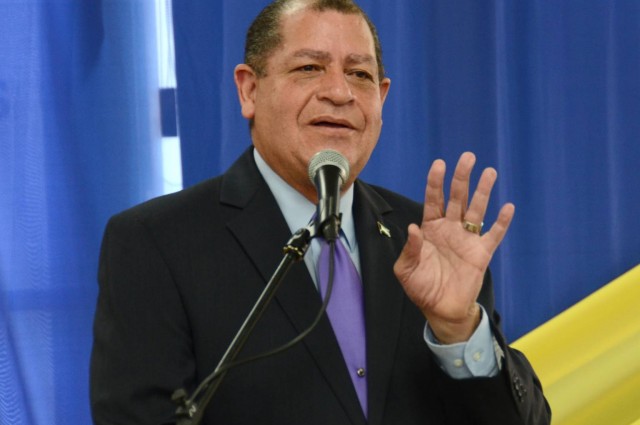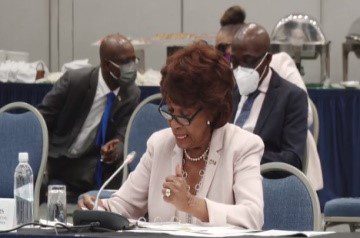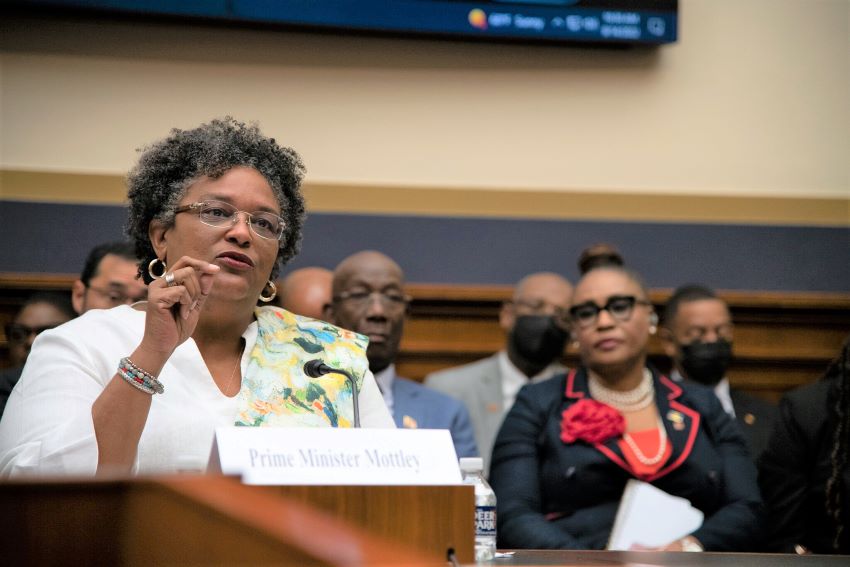Minister of Finance and the Public Service, Hon. Audley Shaw, says the Government continues to lead discussions in order to counter the threat of international correspondent banks cutting ties with local financial institutions.
“We are leading the way… to make sure that we have financial inclusion on a credible, transparent basis as we build a formal economy,” he said.
The Minister was addressing the final day of the fifth annual Anti-Money Laundering/Counter-Financing of Terrorism (AML/CFT) Conference at The Jamaica Pegasus hotel today (October 11).
Correspondent banking involves a bank in one country facilitating certain services for a financial institution in another country, including wire transfers, business transactions, deposits and gathering of documents.
Over the last five years, a number of international banks have restricted or ended their relationship with the region due to concerns about money laundering, fraud and terrorist financing.
Caribbean countries have been collaborating to set up the regulatory environment to efficiently supervise banking and money services and to identify and manage the money laundering and terrorism financing risks in the financial sector.
They have also been lobbying banks to reconsider their decision to withdraw their services.
Mr. Shaw, who participated in the International Monetary Fund (IMF)/World Bank Group Annual Meetings in Washington DC from October 6 to 9, said he believes the regional efforts to challenge the move by banks to cut ties have been bearing fruit.
He said there was a “positive meeting” between regional leaders and the Managing Director of the IMF, Christine Lagarde in Washington, while the Office of the Comptroller of the Currency of the United States has issued a statement that provides guidance to US banks with respect to terminating foreign correspondent banking relationships.
The statement called for the establishment of a governance function to review and monitor recommendations involving foreign account termination and provided insight into the impact of cutting ties with the region and the value of such relationships to the countries involved.
“This statement has helped to open the door to greater dialogue. What we have to do now is to weave into it our own sense of duty and responsibility here in Jamaica. We know what to do, so we have to do it,” Minister Shaw said, referring to the need to bolster the regulatory framework governing the financial institutions.
He noted that financial inclusion is critical, as the Jamaican economy is built around the movement of money through tourism, remittances and trade.
The Finance Minister has indicated that the Caribbean is addressing the problem of de-risking by proactively reassuring international partners that the region’s AML/CFT regulatory framework is robust.
This is being coordinated by the Committee of Caribbean Central Bank Governors, the Caribbean Group of Bank Supervisors, the Caribbean Financial Action Task Force, the Caribbean Association of Insurance Regulators, and Caribbean membership of the Global Forum on the Exchange of Tax Information.
The two-day Anti-Money Laundering/Counter-Financing of Terrorism Conference, on facilitating discussion on strengthening compliance, was hosted by the Jamaica Bankers Association (JBA) and the Jamaica Institute of Financial Services (JIFS) under the theme ‘Understanding our obligations… Safeguarding our Future.’






